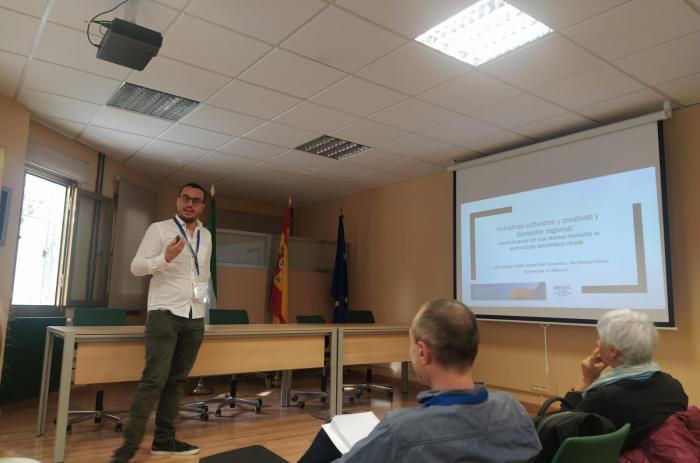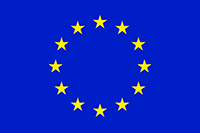Cultural and Creative Industries and Regional Well-being: an assessment of their effects through causal machine learning
From 19 to 22 October 2022, the XLVII International Conference on Regional Science took place in Granada (Spain), organised by the Spanish Association of Regional Science (AECR) with the support of the University Institute for Regional Development Research (IDR) of the University of Granada and the Joint Research Centre (JRC) of the European Commission.
This important multidisciplinary event brought together more than 300 academics specialising in the territorial analysis of society, the economy and the environment, among other areas. The motto of this edition was "Challenges, policies and governance of territories in the post-covid era". MESOC researchers Jordi Sanjuán, Rafael Boix and Pau Rausell, from the Econcult team (University of Valencia), presented some project results, which the scholars in attendance very well received.
Jordi Sanjuán was in charge of presenting the work "Cultural and Creative Industries and Regional Well-being: an assessment of their effects through causal machine learning". The research analysed, with promising but still preliminary findings, the impacts on different well-being areas of the Cultural and Creative Industries, including income, housing, jobs, education, health, community, life satisfaction, safety, civic engagement, environment and access to services. This research is part of Jordi Sanjuán's ongoing PhD, directed by Pau Rausell and Rafael Boix.
The latter also presented the work entitled "Machine Learning to Measure the Effect of Cultural and Creative Industries on Wealth: an application to countries, regions and cities". This other paper, also co-authored by the three researchers, focuses on the economic impacts of CCIs. It comprehensively explores and compares the potential of exploiting novel Machine Learning techniques that allow such complex phenomena as those covered by the MESOC project to be quantified with extraordinary accuracy.
Links to the presentation abstracts:
- Cultural and Creative Industries and Regional Well-being: an assessment of their effects through causal machine learning (available in Spanish)
- Machine Learning to Measure the Effect of Cultural and Creative Industries on Wealth: an application to countries, regions and cities (available in English)


